5 sales promotions for big consumer moments
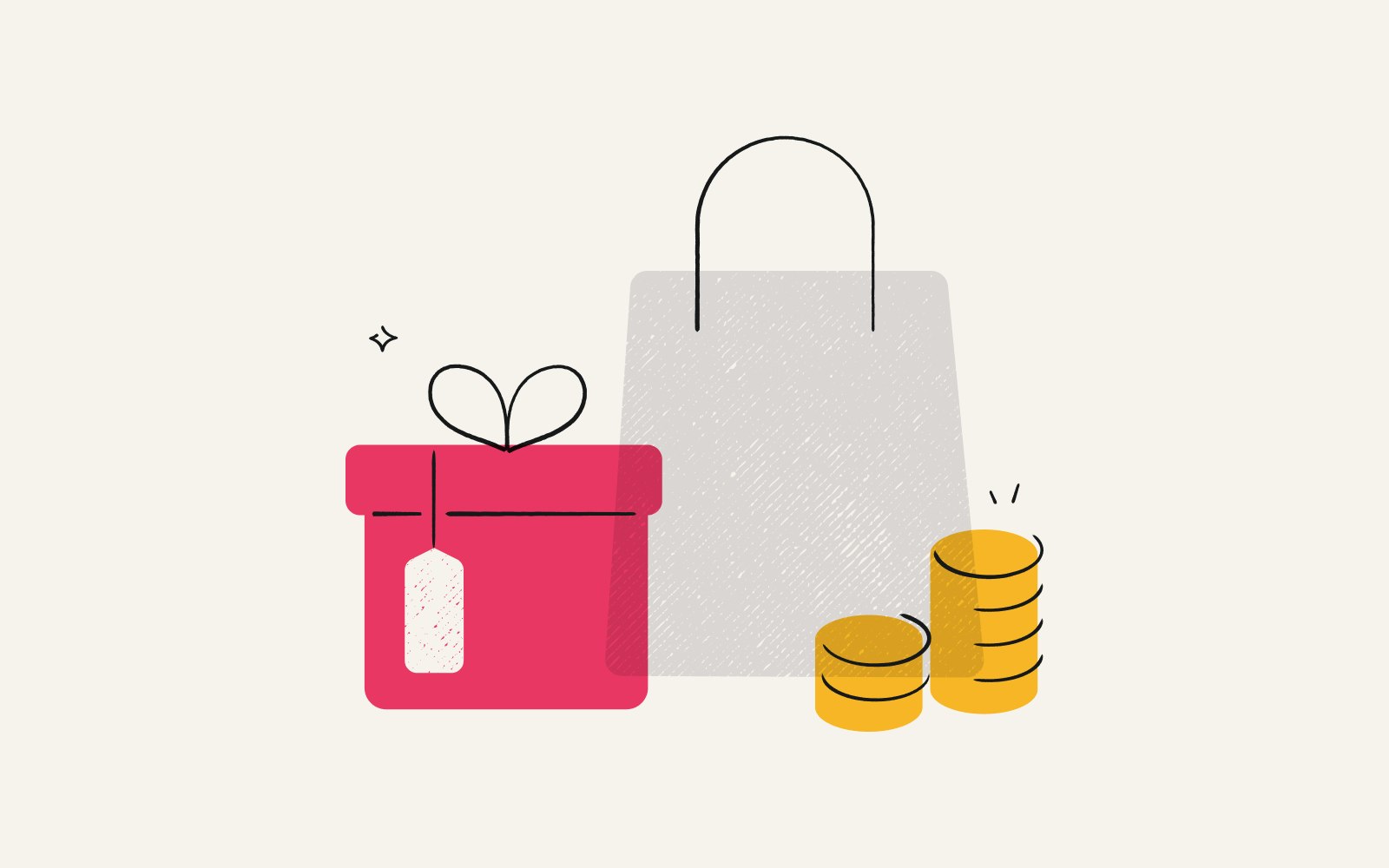
For proof of the power of well-timed sales promotions, look no further than Cyber Monday. The biggest shopping day of the year raked in a record $12.4 billion in 2023 thanks to businesses promoting deals during a major consumer moment: holiday shopping.
But you don’t have to wait until the weekend after Thanksgiving to boost your revenue.
In this post, we’ll show you real-life examples of sales promotions that align with consumer moments year-round.
What is a sales promotion?
A sales promotion is a deal, discount, or other offer that a business runs, usually for a limited time, in an effort to increase sales. Examples include rebates, free accessories, or BOGO (buy one, get one free) offers.
Are sales promotions actually effective?
Promotions can be a double-edged sword. You may get an instant boost in sales, only to suffer long-term brand damage.
Or, you may see a slight slump in profits in the first few months, but see a boost in the years to come thanks to increased customer loyalty.
Pros of sales promotions
If you plan properly, a sales promotion can reap plenty of benefits by helping you:
Quickly hit marketing targets. If you’re not on track to hit your quarterly goal, promotions are a fast way to increase sales numbers, boost brand awareness, or even gain market share.
Improve conversions. Sometimes prospects need a nudge to pull out the credit card. Sales promos can provide that. Justuno analyzed customer data and found that, of the website visitors who made purchases, 0.63% did not interact with a promotion, while 2.17% did. That’s a 244% increase in conversion rate.
Acquire new customers. Running a special offer can provide the incentive that prospects need to try your product. And if they love it, they could become loyal customers. For example, CleanChoice Energy offers a $100 Amazon gift card to new customers who switch to its clean energy subscription service. By doing this, the company hopes a one-time payout will convert to a long-term monthly subscriber.
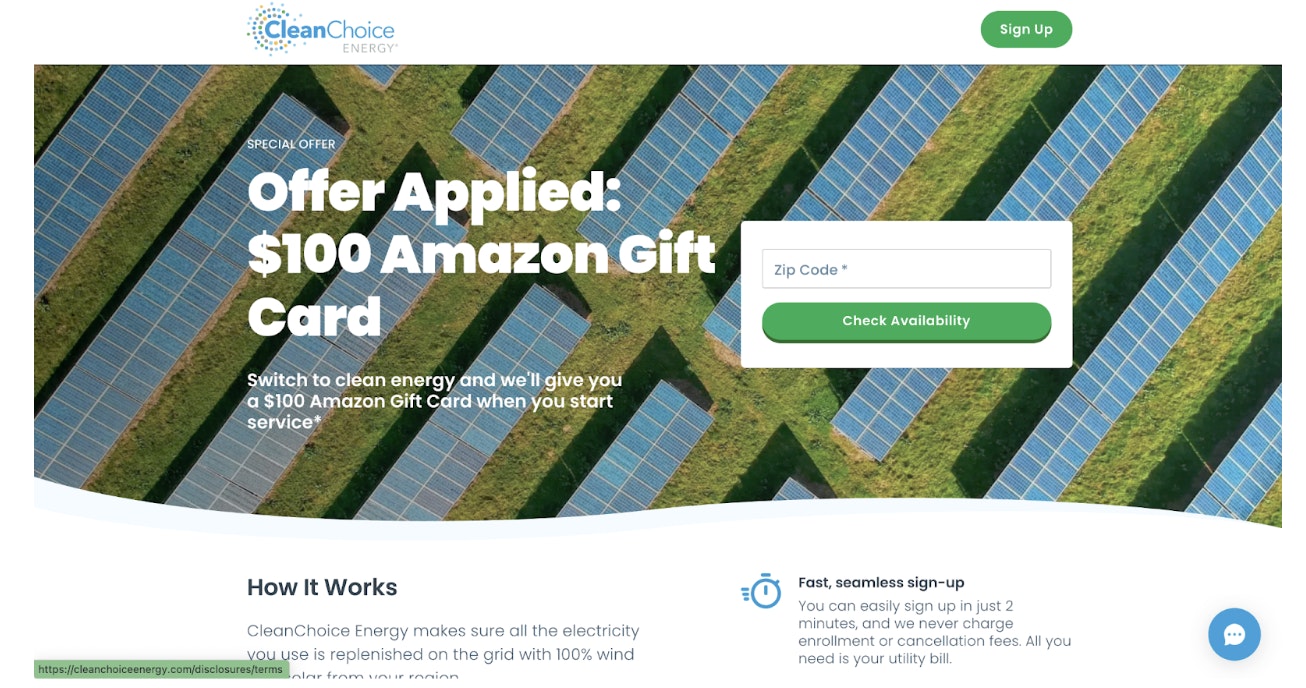
Eliminate overstock. Wander the aisles of any store after a holiday, and you’ll see why consumer promotions make sense. Christmas tree-shaped candy doesn’t sell well once the New Year rolls around. But slash the price, and it’s more likely to fly off the shelves and make space for Valentine’s chocolates. Even selling at a loss is better than it ending up in the dumpster. For instance, in February 2024, the Seattle Marathon Association cut the price of its 2023 shirt in half to help sell outdated merchandise.
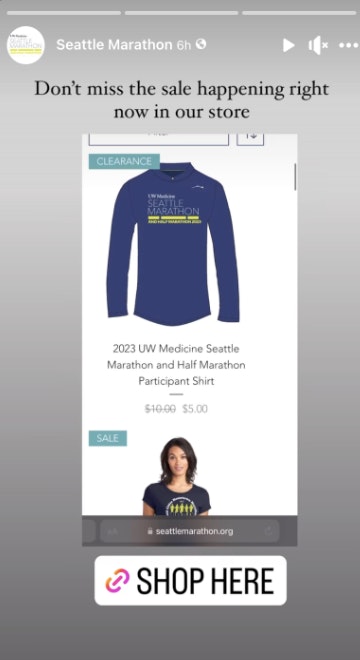
Cons of sales promotions
If not done right, sales promotions can cause harm. An ill-conceived promotion can:
Dilute your brand. Each time you run a promotion, you run the risk of discounting your brand’s perceived value.
Just look at Gap. The iconic American clothing brand was all the rage in the 90s, but when it struggled to regain its slipping popularity in the UK, Gap opted for "a disastrous cycle of discounting that eroded its value," as The Drum's Jennifer Faull puts it. The constant price cuts chipped away at the brand’s image. In 2021, Gap closed all of its UK stores.
Damage customer trust. Consumers will be wary of your brand if your promotions are misleading, even if it’s unintentional.
For example, one brewery faced customer backlash when it incorrectly posted on social media that its contest involved “solid gold” cans. The cans were actually only gold-plated.
Hurt profits. Dubbed "the worst sales promotion in history," Hoover’s offer of two free round-trip flights per £100 purchase is a cautionary tale. The vacuum manufacturer’s promotion grossed roughly £30 million in sales, but the cost of the flights was estimated to be more than £100 million—turning this promotion into a financial mess that Hoover couldn’t clean.
5 extremely profitable consumer promotions
There's a reason Cyber Monday 2023 was the biggest online shopping day in history: Aligning your sales promotion with a time that consumers intend to shop anyway can boost sales even more.
Planning ahead for big consumer moments is key. Here are some ideas for timing:
Think of holidays that might encourage spending. The National Retail Federation says Mother's Day and Father's Day are among the top five consumer events, trailing just behind the winter holidays.
In the same vein, Fridays and Saturdays year-round are big shopping days. Fifty-nine percent of consumers wait for the weekend to get groceries.
Life milestones such as birthdays and graduations are profitable, too, with back-to-school spending reaching record levels in 2023.
Timing is everything, but your offer matters, too. Here are sales promotions consumers love, along with real-life examples.
1. Free shipping
Offering free shipping can sway shoppers to click “pay now.” According to Shippo, 62% of consumers won’t even purchase without the promise of free shipping.
On top of increasing conversions, free shipping doesn’t dilute your brand in the way that discounts might. Delivering your product without charging for transport is vastly different from cutting the price (and perceived value) of your product.
Free shipping consumer promotion example: E-commerce site Trailcampro had long offered free shipping, but many of its customers didn't know. Once the brand started promoting this perk prominently in its website header, along with some other minor website tweaks, it saw a 20% lift in sales.

However, rising costs make free shipping increasingly challenging for companies. In 2023, Amazon raised the minimum order value for free shipping on some of its deliveries to offset costs.
Even if you’re not an e-commerce giant, there are ways to make free shipping work for your business. Shippo's report found that 42% of buyers would join a loyalty program to get free shipping, and 47% would be okay with meeting a minimum spend to qualify for the perk.
So, if you want to cover delivery costs for your customers yet remain profitable, institute a minimum order value or make free shipping an exclusive perk for paid members.
2. Contests and sweepstakes
A contest is a game of skill, whereas sweepstakes rely on chance. Because both involve a short timeframe (urgency), a low chance of winning (scarcity), and a prize (value), they create demand unlike any other sales promotion.
Formstack analyzed data from 650,000 organizations and found that contests had the highest conversion rates of any web page type, beating payment pages, surveys, and event registrations. Specifically, 35% of people who visited a contest page submitted their information via the form.
Sweepstakes consumer promotion example: E-commerce store Enigma Fishing launched a sweepstakes that generated 3,000 leads and over $52,000 in sales. The prize? A $150 gift card. It just goes to show how compelling money can be.
Supercharge your sweepstakes by letting winners choose the type of gift card they get. Tremendous offers over 2,000 ways to redeem a reward, from prepaid Visa cards to charitable donations.
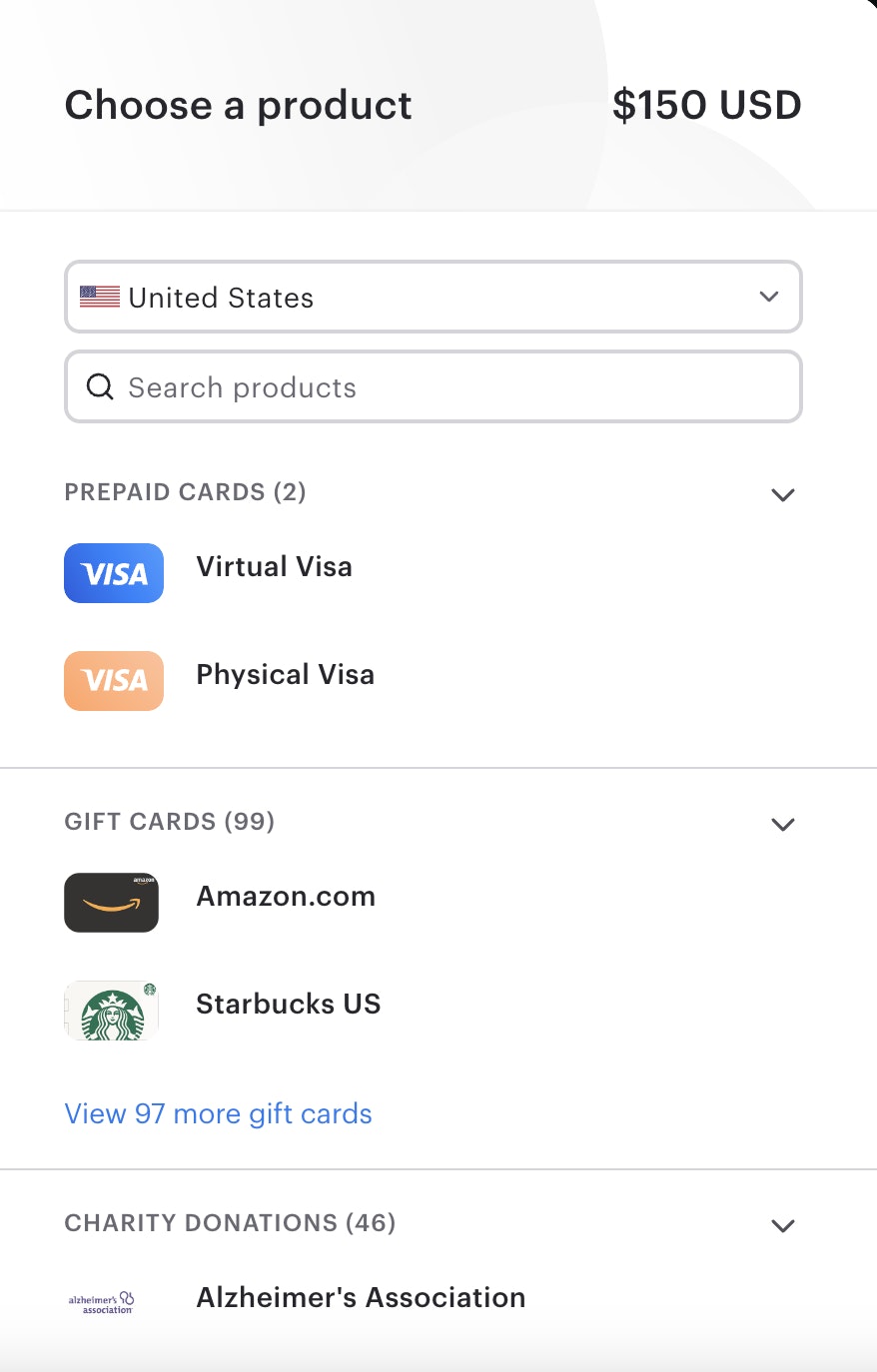
3. Cashback promotions
Cashback and rebate promotions are better for your profit margins than discounts. Why? Because discounts happen automatically at the point of sale, buyers redeem them 100% of the time (which is why, if you do discounts, we recommend requiring codes. See the “discount codes” section below). But because rebates happen post-sale, not every buyer will go through the process to redeem them.
Our research found that only 38% of buyers redeem a rebate of $20 or less. And while rebate promotions generate roughly 10% fewer additional sales, they’ll still end up costing you less than a discount.
Cashback consumer promotion example: The automobile accessory company Rhino-Rack offered 25% cashback to U.S. residents who purchased its products around the holidays. Customers had to keep their receipts and submit their claims via the website. Rhino-Rack issued rebates by mailing Visa gift cards.
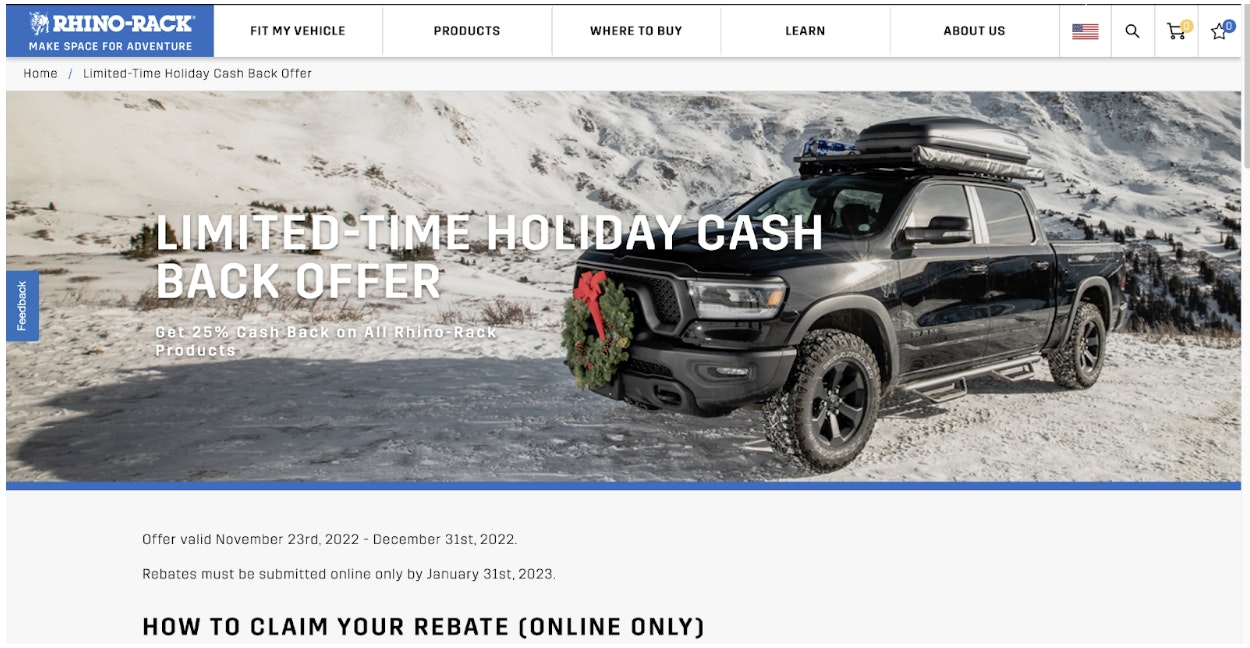
Physically mailing out gift cards to multiple customers nationwide can be a hassle. Tremendous simplifies the rebate process by making it easy to send digital gift cards to anyone, anywhere. Plus, recipients can redeem the gift card for their favorite merchant, such as Starbucks or Uber, or send it to their favorite charity, such as the American Red Cross.
4. Free gift or gift card with purchase
Sometimes running a sales promotion is about winning market share—especially if you’re new.
Free gift card consumer promotion example: When Evolus launched Jeuveau, it used free gift cards to win over customers from competitor Botox, which had a 70% market share at the time. Evolus offered a $75 digital Visa prepaid card to every new Jeuveau customer.
Choosing a gift-with-purchase promotion over cashback made sense for Evolus. Compared to Botox, Jeuveau was a relatively unknown product, and medical aesthetics come at a high price point. By offering a prepaid incentive instead of a promised one, Evolus made it easier for customers to take the leap of faith.
The results? Within six months, newcomer Jeuveau jumped to #3 in market share. By partnering with Tremendous, Evolus delivered over $20 million to 180,000 new patients across the U.S. in eight months—all through its mobile app.
5. Discount codes
Finally, let’s talk discounts, the classic sales promotion. Consumers love them, and when used wisely, they benefit brands too. But instead of reducing prices automatically across all products, consider promo codes for specific items, categories, or customers.
Dartmouth marketing professor Scott Neslin and his coauthor Wenyu Jiao ran a field experiment with a U.S. clothing retailer. They found that promo codes had two effects:
Acceleration: Promo codes encouraged customers to buy now what they would have bought eventually.
Loyalty: Promo codes boosted long-term loyalty for some customers.
Accounting for both effects, they calculated that promo codes had an ROI of 43% to 214%. Because discounts cause an initial bump in profits due to acceleration, and a resulting slump a month later, Neslin says it's important to look at their long-term ROI. Namely, increased customer loyalty. When your promo codes are exclusive to your email list or loyalty program, members feel special, keeping them coming back again and again.
If you want to try discounts codes:
Limit them to a short timeframe. This creates a sense of urgency and scarcity that can drive demand. Plus, it ensures the sales promotion doesn’t break the bank.
Use them sparingly. Brands that bombard consumers with new discounts every other day risk making their customers immune to persuasion; the promotions are no longer novel. Over-indexing on discounts can also degrade the perceived value of your products. People may start to class your brand as cheaper, and therefore of lower quality than competitors, due to excessive discounting.
Don’t be shady. Steer clear of shadier tactics such as false scarcity. They may drive instant sales, but they’re not worth sacrificing brand integrity and customer trust.
Discount consumer promotion example: For Super Bowl 2024, Target offered limited-time discounts on game-day items such as big-screen TVs and chips and dip.
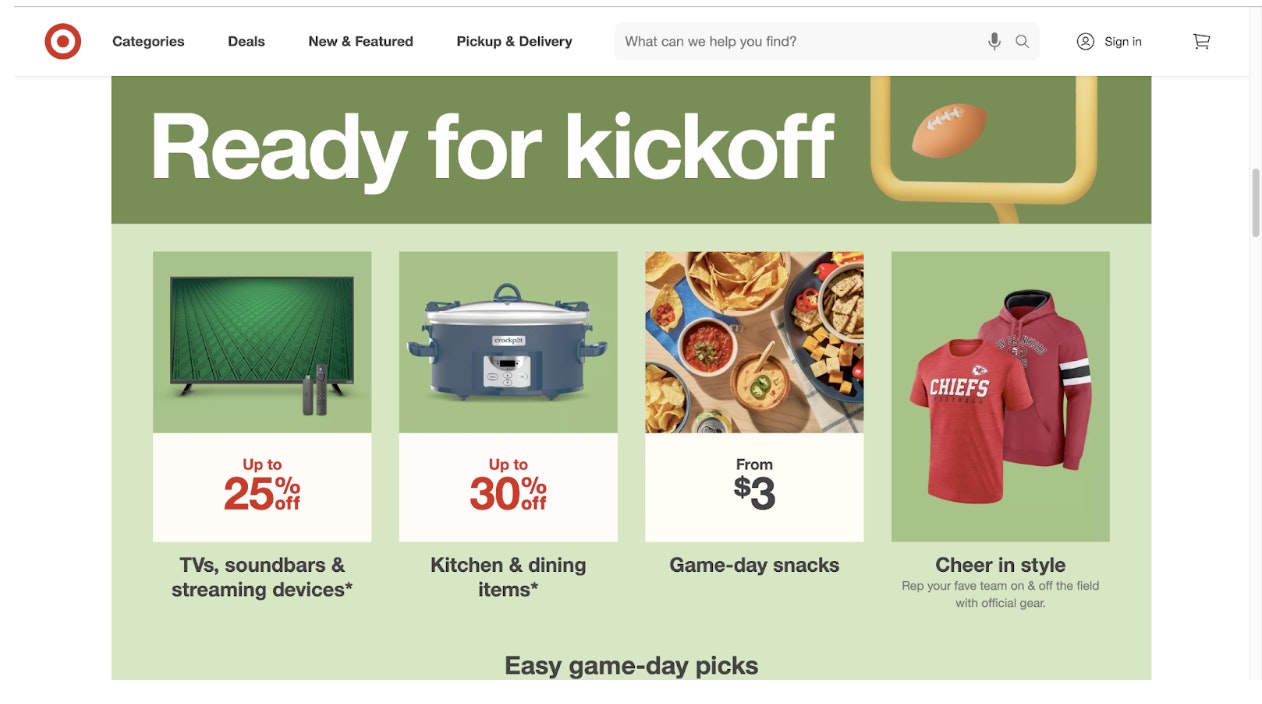
Set up your sales promotion for success
When done right, a consumer promotion benefits both seller and buyer. You get a fast uptick in sales, and the customer gets a good deal.
To get the most out of your promotions:
Know your limits. The key to a successful sales promotion is to have enough limitations on it so that it doesn’t hurt profits. Keep the timeframe short, limit the deal to specific items or product categories, or offer it exclusively to new customers or paying members.
It’s okay to change. If a promotion doesn’t go according to plan, modify it so that it benefits your customers and your business.
Get creative. Think beyond Amazon gift cards. With Tremendous, your customers can redeem a reward in more than 1,000 ways, and it doesn’t cost you a penny more than the actual value of the gift card.
Running a successful sales promotion is challenging enough without the hassle of figuring out how to send rewards to your participating customers. Tremendous makes it easy by creating a central place to deliver rewards digitally. Take Tremendous for a test run by signing up for a free account.